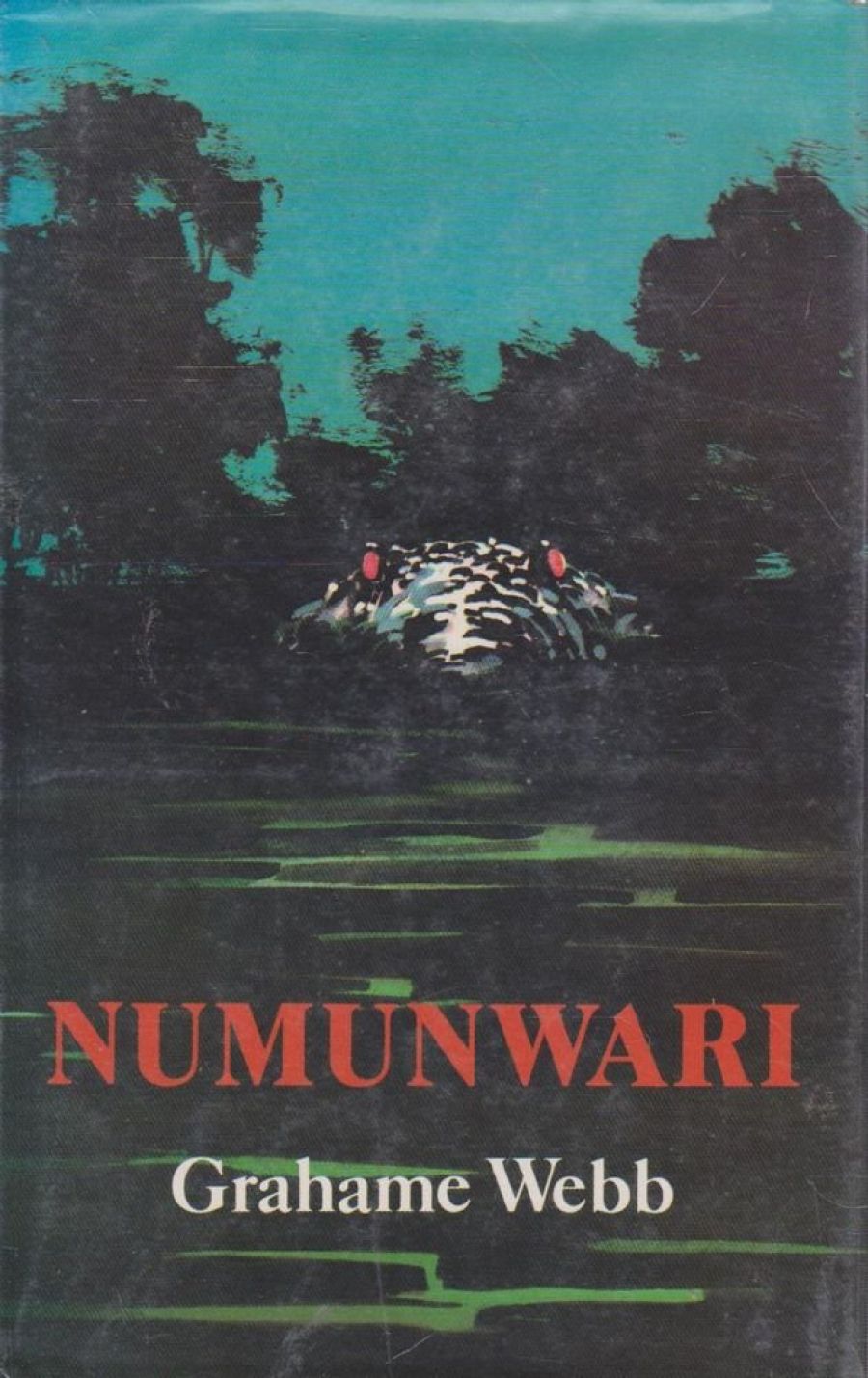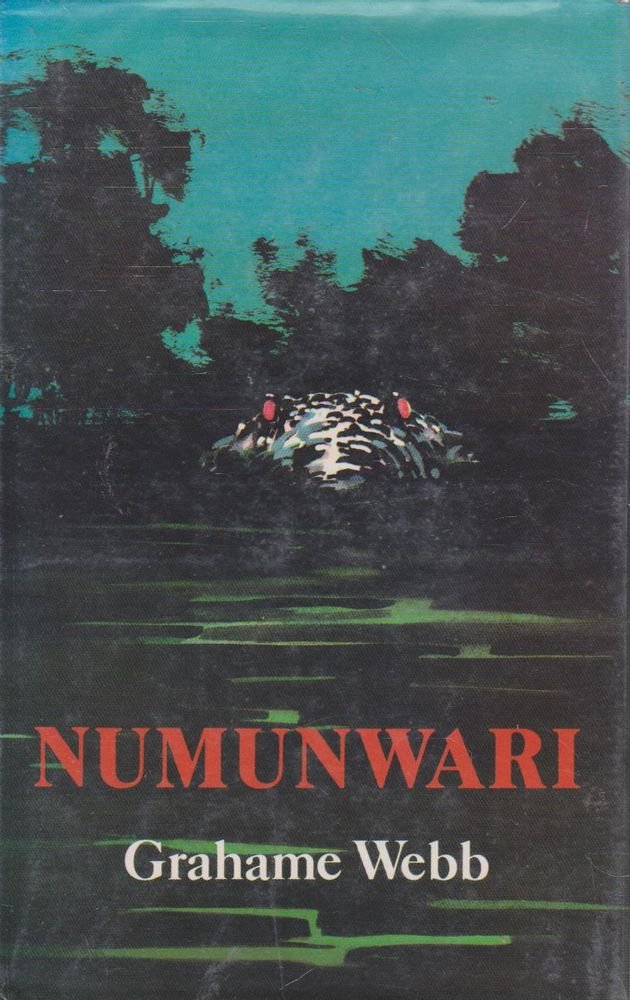
- Free Article: No
- Contents Category: Indigenous Studies
- Review Article: Yes
- Article Title: Save the Crocodile
- Online Only: No
- Custom Highlight Text:
It is a shame that animals have recently become infamous in books and film. For some reason, predators of man possess a morbid fascination, whether they are calculating killers or mindless machines of instinct. Culpable or not, the giant saltwater crocodile Numunwari is an enemy of the people in precisely the same fashion as the giant shark in Benchley’s Jaws.
- Book 1 Title: Numunwari
- Book 1 Biblio: Aurora Press, $14.95 pb
- Book 1 Cover Small (400 x 600):

- Book 1 Cover (800 x 1200):

Chomping its way from the isolated aboriginal settlement of Maningrida to the isolated white settlement of Darwin, Numunwari is at once a scourge of the whites and a god of the blacks. A significant difference, however: the black's deification is based on dreamtime beliefs; the white’s horror on demonstrable predationess. This dichotomy has important consequences for the novel – for it is primarily a story about one culture determined to destroy an unmanageable predator and another determined to protect it.
Neophyte novelist and crocodile biologist Grahame Webb implies in the acknowledgements to his book that this fiction could easily become fact. I disagree. Webb weaves individually feasible, but unlikely events into an exceedingly improbable sequence. In spite of this, Numunwari is, for a number of reasons, both an appealing and entertaining novel.
Webb is conspicuously sensitive to the aboriginal perspective, and skilfully interprets this within the framework of two quite different cultures temporarily focused on the same object – Numunwari. He avoids criticism of the dreamtime myth and lauds aboriginal knowledge of crocodiles. For instance, the aboriginals’ belief that Numunwari would not prey on their race is at least loosely supported in the story and the aboriginal involved in the hunt is consistently wiser and better informed than his white counterparts.
Although Webb submits to pressure to vilify the crocodile, at least by deed, he consistently does so without anthropomorphism. Thus, we learn that Numunwari’s violent destruction of a number of boats is but a fortuitous consequence of the animal perceiving and responding to the boats as prey, rather than a vengeful attack on its aggressors.
Numunwari is also a book with two messages. Ironically, in a novel about a man-eating, city-terrorizing giant crocodile, the first message is that crocodiles need to be conserved and managed if they are to survive. Webb communicates this unlikely notion to the reader and makes it eminently respectable through the simple trick of making it the hero’s opinion – wildlife officer Steve Harris is passionately devoted to the conservation of crocodiles. Nancy, a black beauty from the remote settlement and Steve’s other passion, symbolizes the less explicit second message: that aboriginal culture and people warrant empathy and respect.
Numunwari, then, is a novel for those who enjoy animal horror stories of conventional, even cliched theme, but deserves a somewhat wider appeal for its adept treatment of issues peripheral to the central story.


Comments powered by CComment